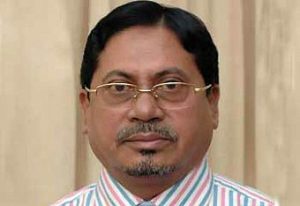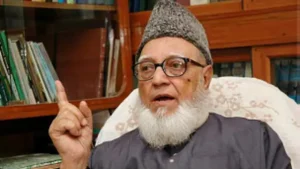
Belt and Road Initiative (BRI): One of Xi’s hallmark foreign policy initiatives, the BRI has sought to improve infrastructure, trade, and diplomatic relations across Asia, Africa, and Europe. This initiative reflects Xi’s ambition to reshape global trade routes and establish China as a central player in international affairs.
3. Military Strengthening
Military Modernization: Xi has prioritized the modernization of the People’s Liberation Army (PLA), with an emphasis on cutting-edge technology, naval power, and nuclear capabilities. His administration has also advocated for a more assertive foreign policy, particularly in contested areas like the South China Sea and Taiwan.
Military-Civil Fusion: Under Xi, China has pursued a strategy of integrating military and civilian sectors to enhance the country’s defense capabilities. This has included leveraging technological advancements made by private companies for military purposes.
Strategic Assertiveness: Xi’s leadership has been marked by a more assertive foreign policy, with China seeking to expand its influence in global organizations and increasing its military presence in contested regions, often leading to tensions with other world powers, particularly the United States.
4. Anti-Corruption Campaign
Crackdown on Corruption: One of Xi’s major initiatives has been his anti-corruption campaign, which has purged both high-ranking officials and lower-level bureaucrats within the CCP. Xi presented this as a means of cleaning up the Party, but it has also served to eliminate potential rivals and consolidate Xi’s power.
Political Consequences: The anti-corruption campaign not only increased Xi’s political capital but also served to align the Party with his vision by removing individuals who were seen as obstacles to his leadership. However, critics argue that the campaign was also a political tool to eliminate challengers.
5. Domestic Policies and Social Control
Social Control and Surveillance: Xi’s regime has seen an increase in state surveillance and control over society. The implementation of a social credit system, aimed at monitoring citizens’ behavior, is a notable example of the government’s ability to track and influence public conduct.
Censorship and Information Control: Xi has tightened control over the media and the internet, censoring online content that is critical of the government. His administration has also moved to crack down on Western influence, particularly in the realms of social media and news outlets.
Repression of Dissent: Under Xi, there has been a crackdown on dissent in regions like Hong Kong, where pro-democracy protests were met with strong resistance, and in Xinjiang, where policies against the Uyghur Muslim population have been widely criticized as human rights violations.
6. Foreign Policy and Global Influence
Global Leadership: Xi Jinping has sought to reposition China as a global leader, challenging Western dominance in international institutions and asserting China’s leadership in areas like trade, climate change, and global security. He has been critical of the United States and other Western powers, calling for a multipolar world where China plays a dominant role.
Diplomatic and Economic Influence: Xi’s administration has expanded China’s presence in international organizations such as the United Nations and the World Trade Organization. Through the Belt and Road Initiative (BRI), China has secured economic ties with numerous countries, particularly in Africa, Asia, and Latin America.
Tensions with the West: Under Xi, China’s relations with the U.S. and many Western countries have become more confrontational, particularly over issues like trade, Taiwan, human rights in Xinjiang, and the status of Hong Kong. The U.S.-China trade war and increasing military tensions have marked a key aspect of Xi’s foreign policy.
7. Human Rights Concerns
Repression in Xinjiang: Xi’s policies in Xinjiang, particularly the treatment of Uyghur Muslims, have drawn widespread international criticism. Reports of mass detentions, forced labor, and forced assimilation policies have led to accusations of genocide and crimes against humanity by various human rights organizations.






